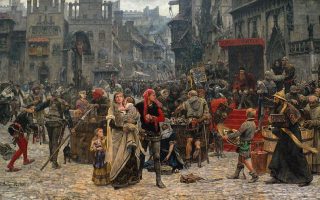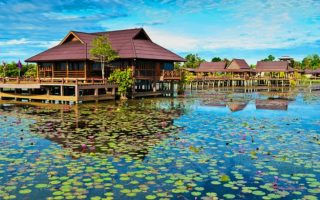iwillnotbebroken.org – On September 22, 2024, Sri Lanka elected Anura Kumara Dissanayake as its new president, marking a significant shift in the country’s political landscape. Dissanayake, a Marxist-leaning leader, has been sworn in as the ninth executive president of Sri Lanka, promising to address the nation’s economic turmoil and fight corruption.
Background and Early Life
Anura Kumara Dissanayake was born on November 24, 1968, in Thambuttegama, Ceylon (now Sri Lanka). His early involvement in politics began in 1988 when he joined the People’s Liberation Front (Janatha Vimukthi Peramuna; JVP) during its second Marxist insurrection. Despite interruptions to his education due to political activities and government persecution, Dissanayake earned a bachelor’s degree in physics from the University of Kelaniya in 1995.
Political Career
Dissanayake entered the Sri Lankan parliament in 2000 as a representative of the JVP. He served as the minister of agriculture, livestock, lands, and irrigation from 2004 to 2005. In 2014, he became the leader of the JVP and began to rehabilitate the party’s image by apologizing for the excesses of the JVP’s insurrections in the 1970s and 1980s.
In 2019, Dissanayake established the National People’s Power (NPP), a progressive coalition of 21 political organizations, and ran in that year’s presidential election, receiving 3 percent of the vote.
Election and Presidency
Dissanayake’s victory in the 2024 presidential election reflects public frustration following Sri Lanka’s 2022 economic collapse, which was driven by corruption, poor monetary policy, the COVID-19 pandemic, and the inability of the previous government to address these issues. His election marks a major turning point in Sri Lankan politics, as he is the first president not to come from a political family.
During his campaign, Dissanayake pledged to fight corruption and bolster the fragile economy. His left-leaning policies and promise of reform resonated with voters, leading to his historic win.
Challenges and Future
As the new president, Dissanayake faces significant challenges, including economic recovery and political reform. His Marxist background and the JVP’s controversial past will require careful navigation to build trust and stability within the country. Dissanayake has already dissolved parliament to pave the way for snap parliamentary elections, signaling his commitment to swift action and reform.
Conclusion
Anura Kumara Dissanayake’s election as Sri Lanka’s new president marks a new era of reform and change. With a pledge to address corruption and economic instability, Dissanayake is poised to lead Sri Lanka through a period of significant transformation. His journey from a student activist to the country’s highest office underscores the potential for political renewal and the power of public will in shaping a nation’s future.




